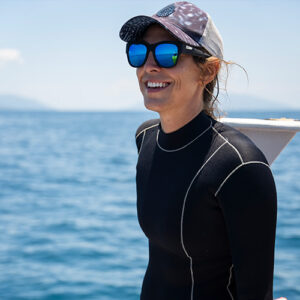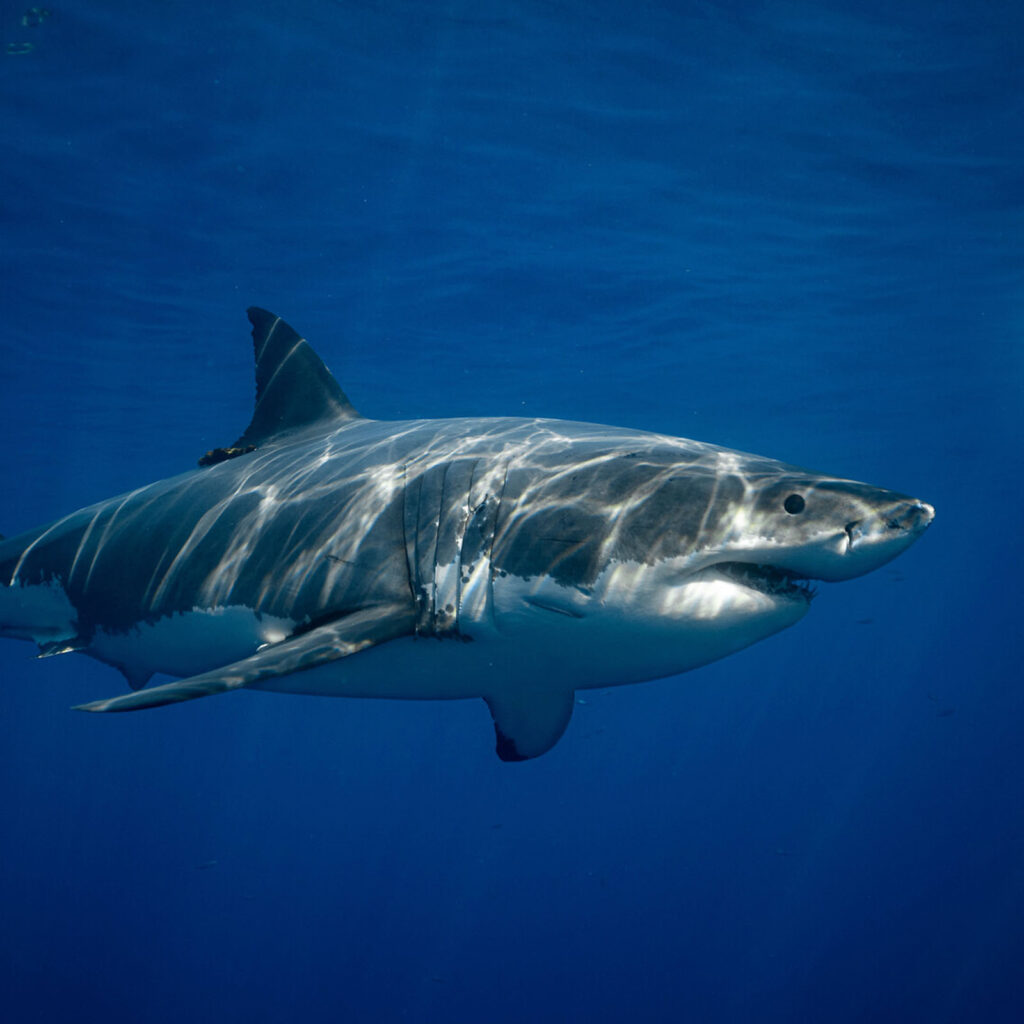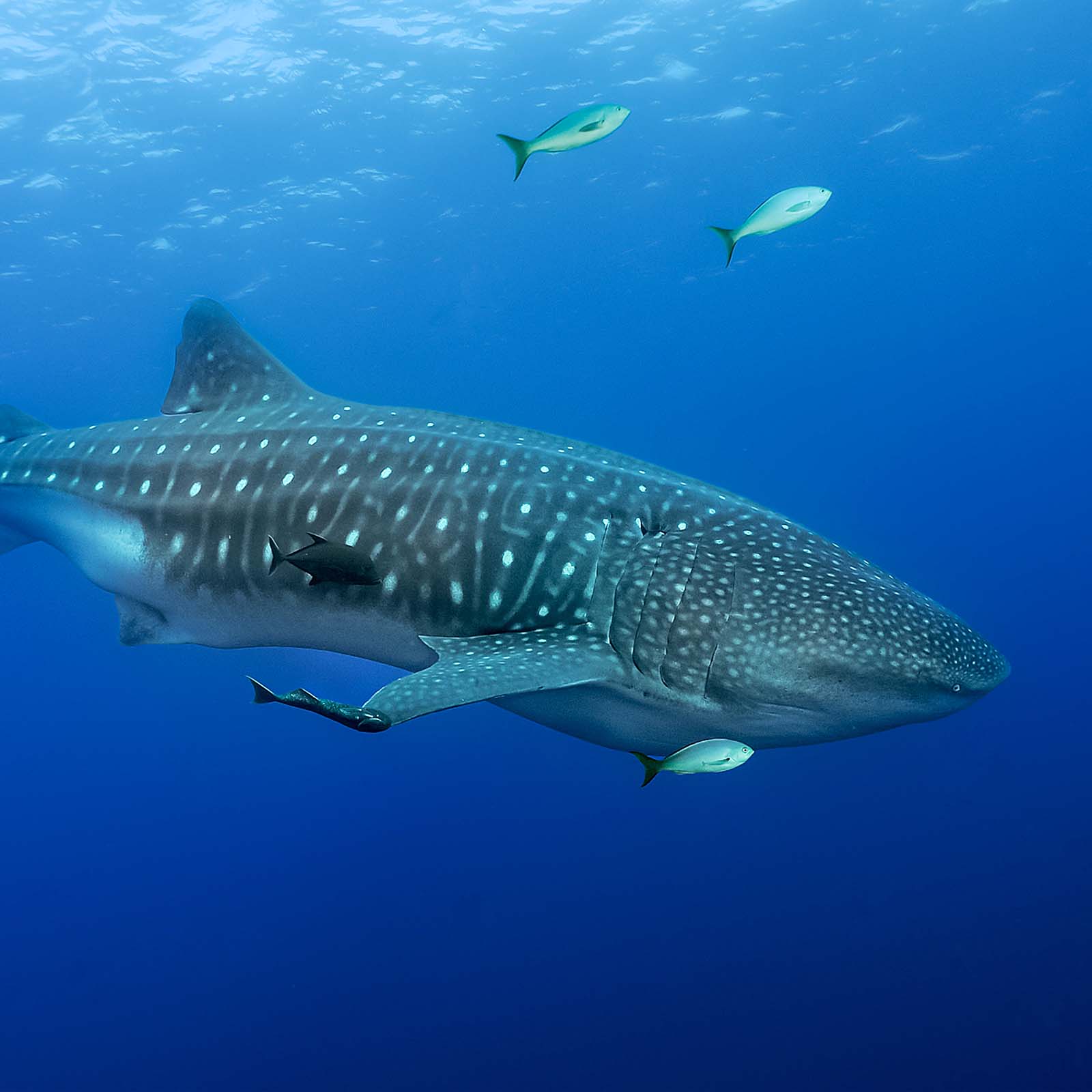
Madagascar Whaleshark Project Foundation.
Fight together with Stella for a newly discovered whale shark hotspot around an island where fast-growing tourism brings opportunities and dangers.
Why
Global importance due to the population of over 500 whale sharks
Location
Nosy Bay, Madagascar
Goal
Protection through knowledge and education
Funding Goal
77.000 €

Long-term impact
Why this project is so important:
- Protection and conservation of the local whale shark population
- Expansion of the existing marine protected areas
- Education of local communities for sustainable marine conservation and sustainable tourism

Backgrounds
Global and Local
Madagascar is a global hotspot for whale sharks. More than 500 individuals have been identified since 2015. At up to 21 meters in length, whale sharks are the largest of all sharks, but they are also very sensitive to environmental influences. Fishing also poses a major threat. They are therefore listed as endangered on the IUCN Red List.
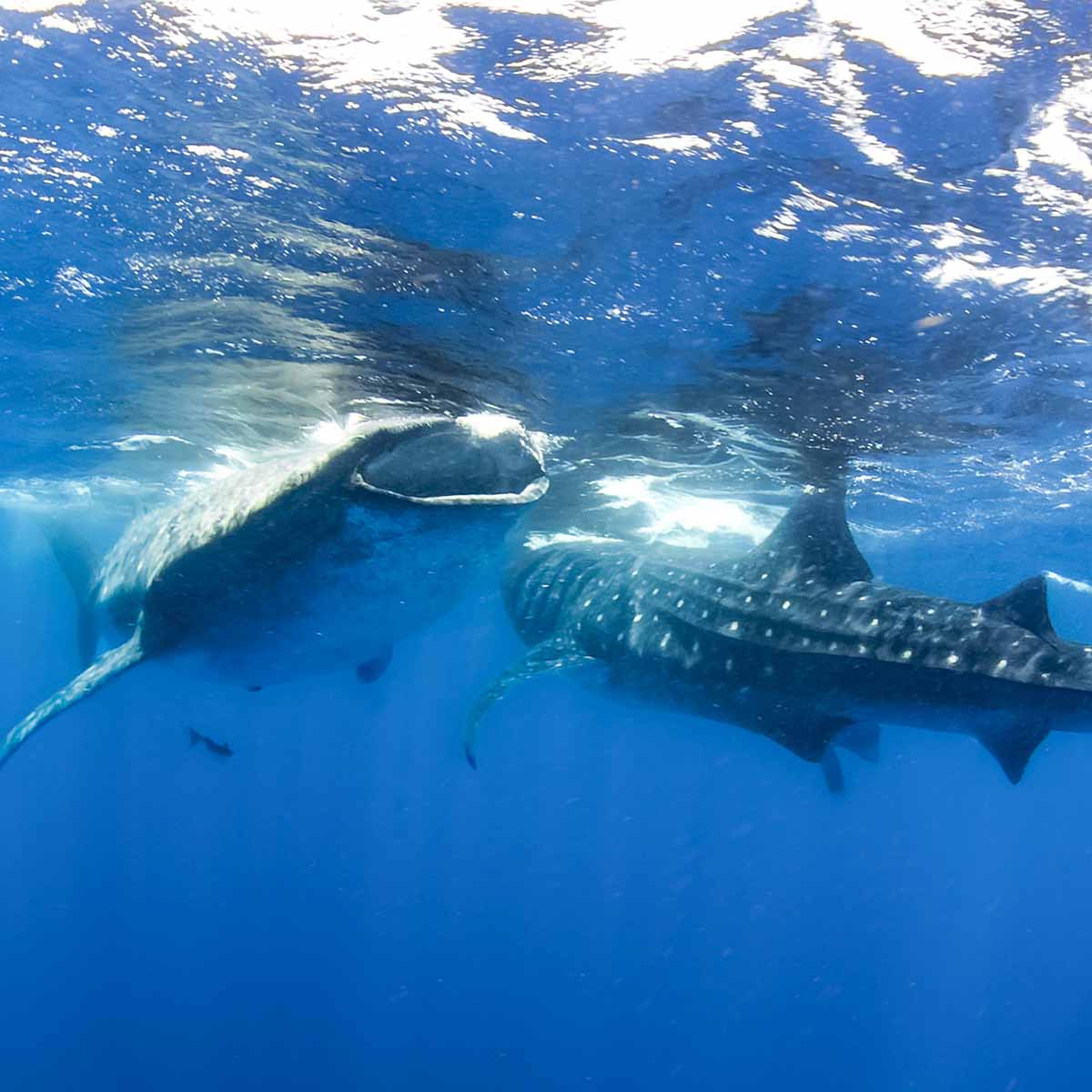
© K. P. Harter
Only through knowledge and education can these animals be preserved. The protection of the whale shark population around Madagascar therefore also has a significant impact on the protection of this endangered species in general.
Sharks in their natural environment
Stella and her team’s main scientific focus is initially on gaining a better understanding of the occurrence, population structure and whereabouts of the animals, as well as their habitat. Only through this knowledge can effective protection be achieved.
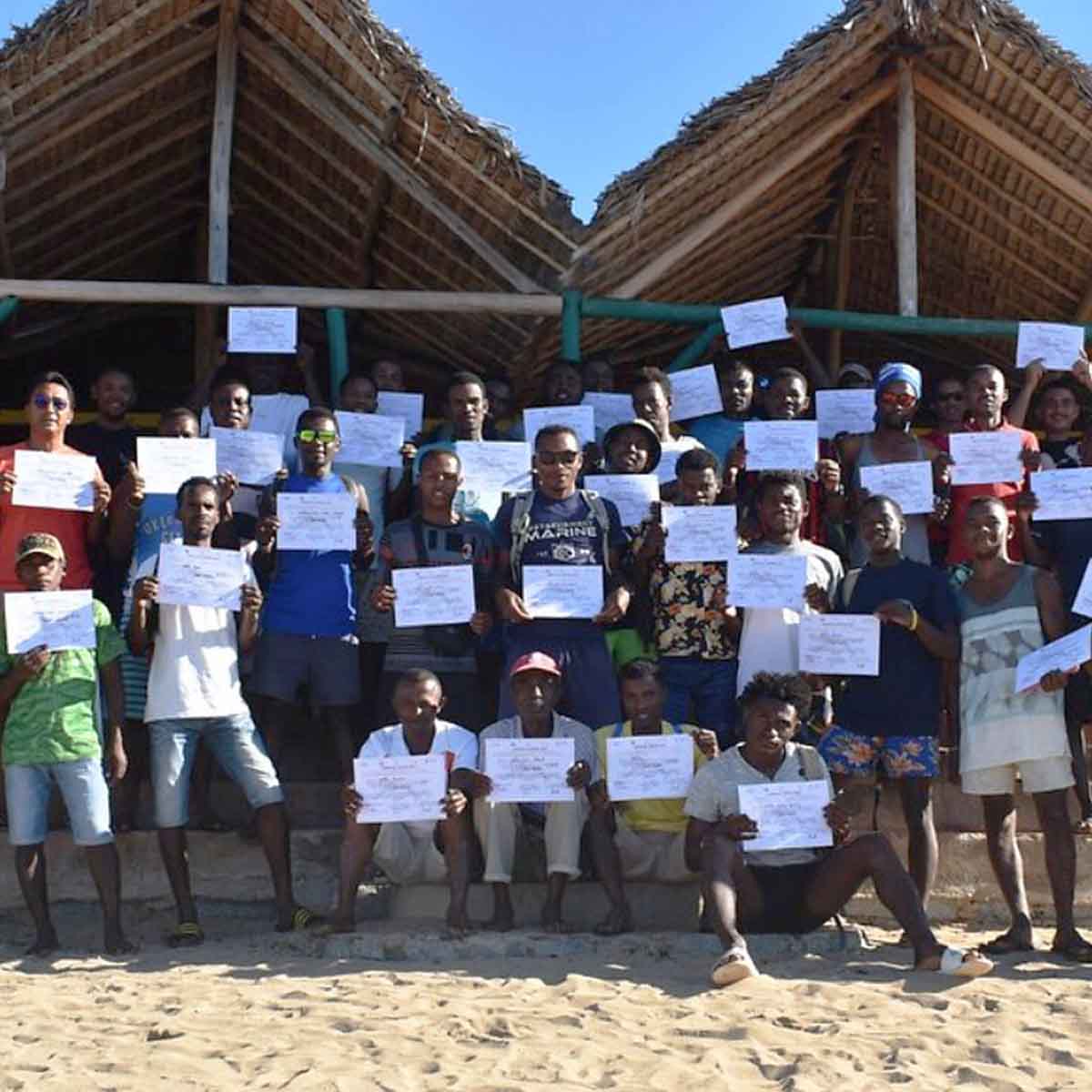
Knoll Antonia
Their lives are precious!
The team’s work also includes interviews with tourists to determine the socio-economic value of a living whale shark. Similar studies, e.g. for whales, have resulted in some enormous sums. This will hopefully provide a better starting position for conservation measures for whale sharks.
Together with the locals
The Madagascar Whale Shark Foundation is also having a significant impact beyond science: the local population is being educated to protect the animals. It is important to raise awareness of the unique nature and importance of these animals among adults, but also among children, so that everyone can help to ensure that the whale sharks in Nosy Be remain and are protected. This is no easy task for the inhabitants of an economically weak country and an island that has been overrun by tourism, especially in recent years.
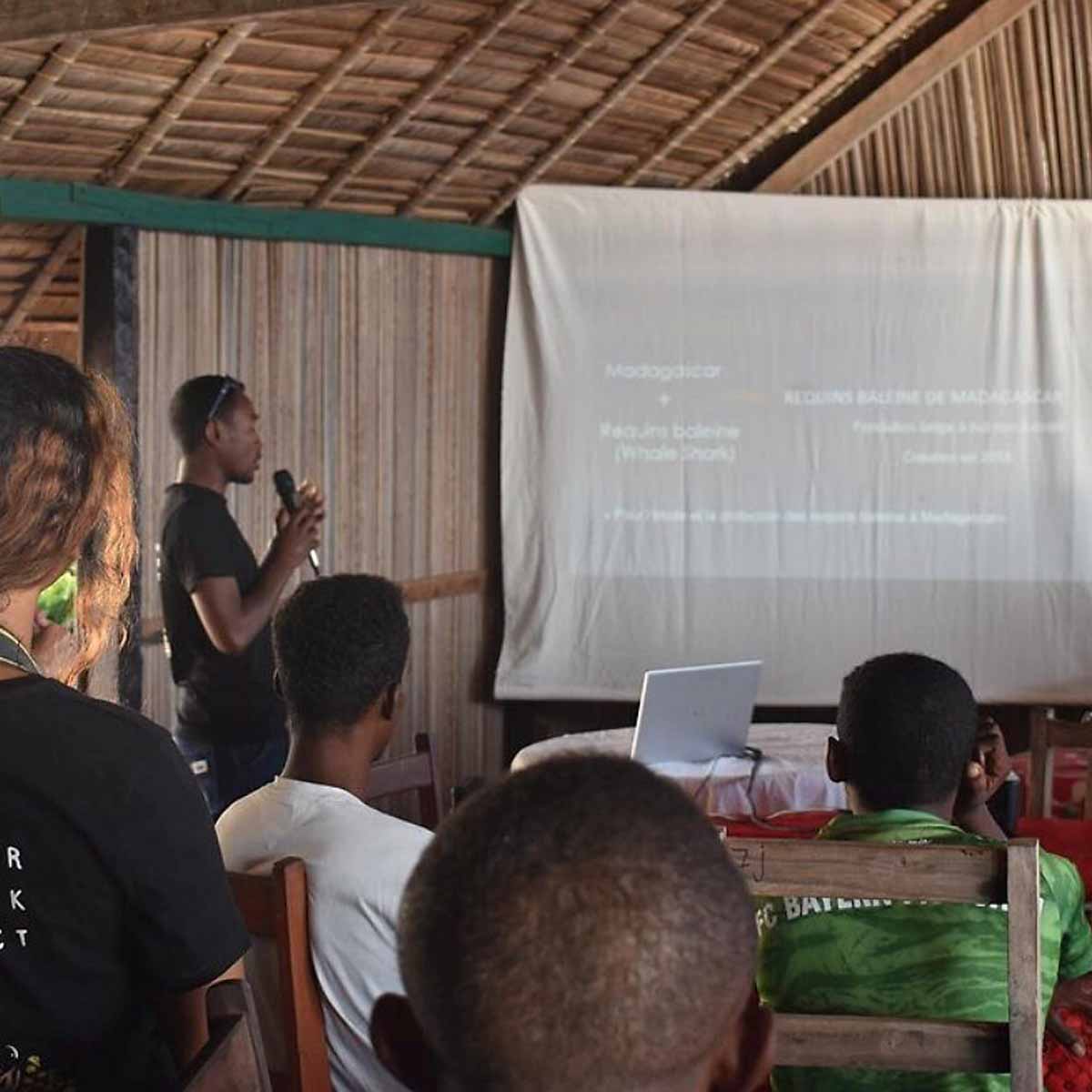
Knoll Antonia
Why is your support so important?
Due to the special importance of the population and the versatility of the project, the limiting factor is mainly the financing of personnel or research materials such as tags. Your support helps to further expand the project and enable important work to protect sharks.

© K. P. Harter
Act together for shark conservation you can help!
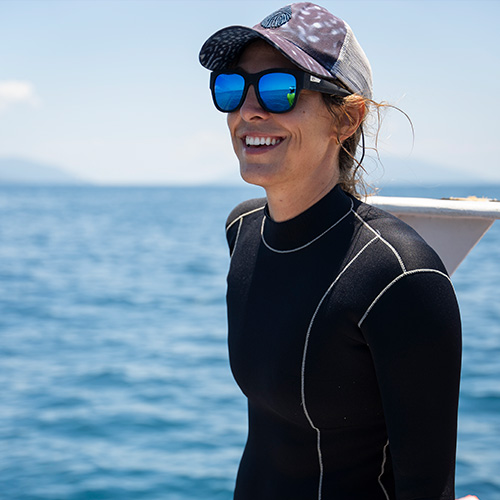
Choose your desired amount:
How many times do you want to help?

Overview
Goals
The scientific focus of Stella and her team is to get to know the occurrence, population structure and whereabouts of the animals better, as well as their habitat.
In addition, the socio-economic value of a live whale shark is determined through interviews with tourists, in order to have a better starting position for their protection.
Location
The project takes place in Madagascar on the island of Nosy Be in the north of the country and the surrounding waters of the Indian Ocean.
Project Duration
The project started in 2014 and has no time limit. Stella Diamant’s team is currently growing. The level of awareness of the project will also increase in the coming years.
Project Travels
From September to December there is the possibility to support the project as a volunteer – even if you are not a scientist! However, it is required to be fluent in French and be able to swim safely.
You would like to visit the project? This is possible as part of the Science Days or Science Weeks.
Project Lead
Stella Diamant: Project Founder and Lead Researcher; link to her homepage

Project history
2023
A "Code of Conduct" has been established for the local tour operators to protect the whale sharks from unnecessary stress. This has been officially included in the interministerial decree February 2023 and is now part of the Malagasy Law.
2014
After seeing her first whale shark in 2014 in Nosy Be, Stella founded her shark conservation project.
Up today, more than 500 different whale sharks have been counted in the waters around Nosy Be. The sharks' swimming routes are tracked by acoustic transmitters and satellites.
2005 – 2007
The first whale shark study in Nosy Be took place and has been published.

Contact
your contact in Madagascar Stella Diamant
SHARKPROJECT Ambassador for Angola. Stella accompanies the project on-site.
your contact in Germany Jan Bierwirth
Jan accompanies this project for SHARKPROJECT from Germany and will be happy to answer all your questions about the project.
Act together for shark conservation you can help!

